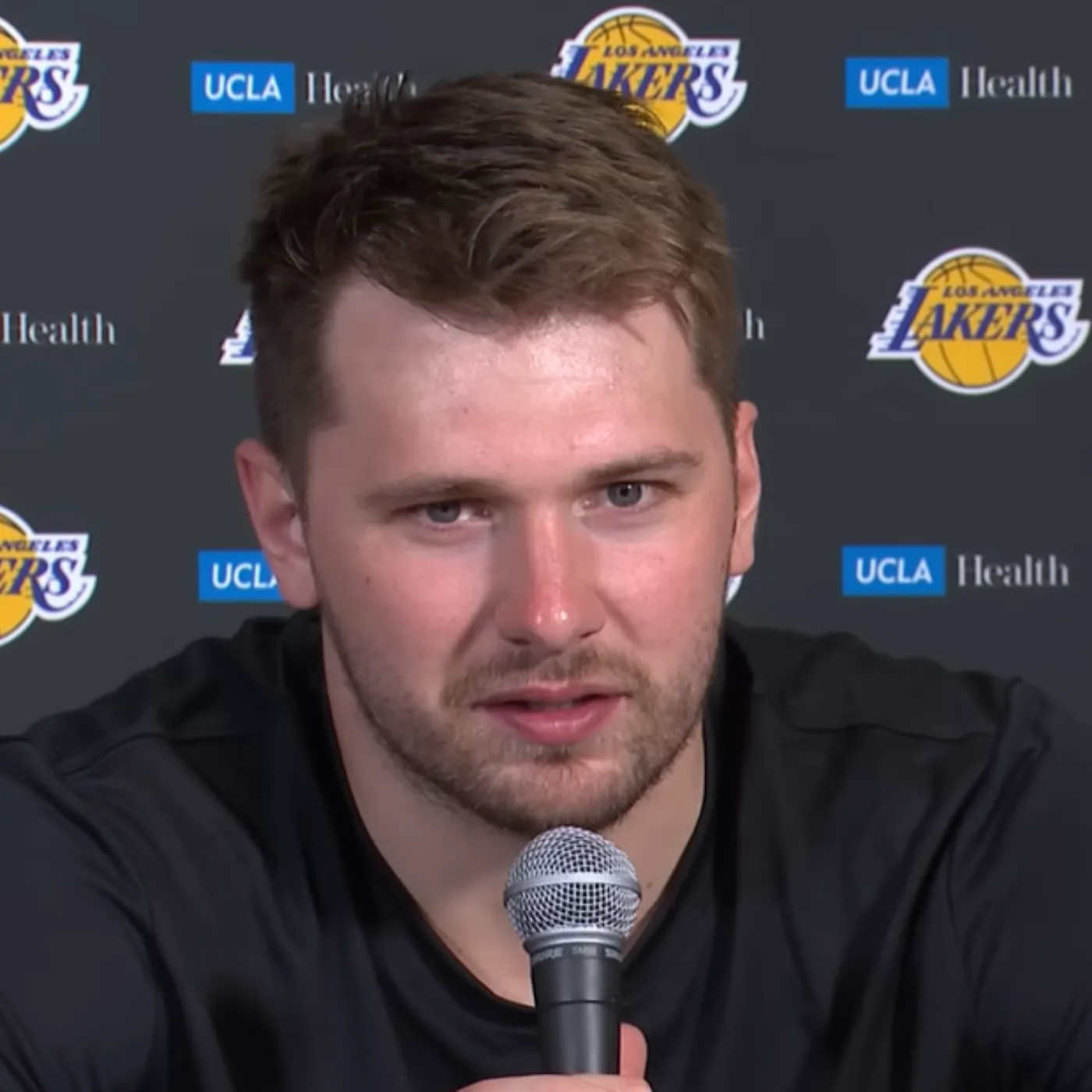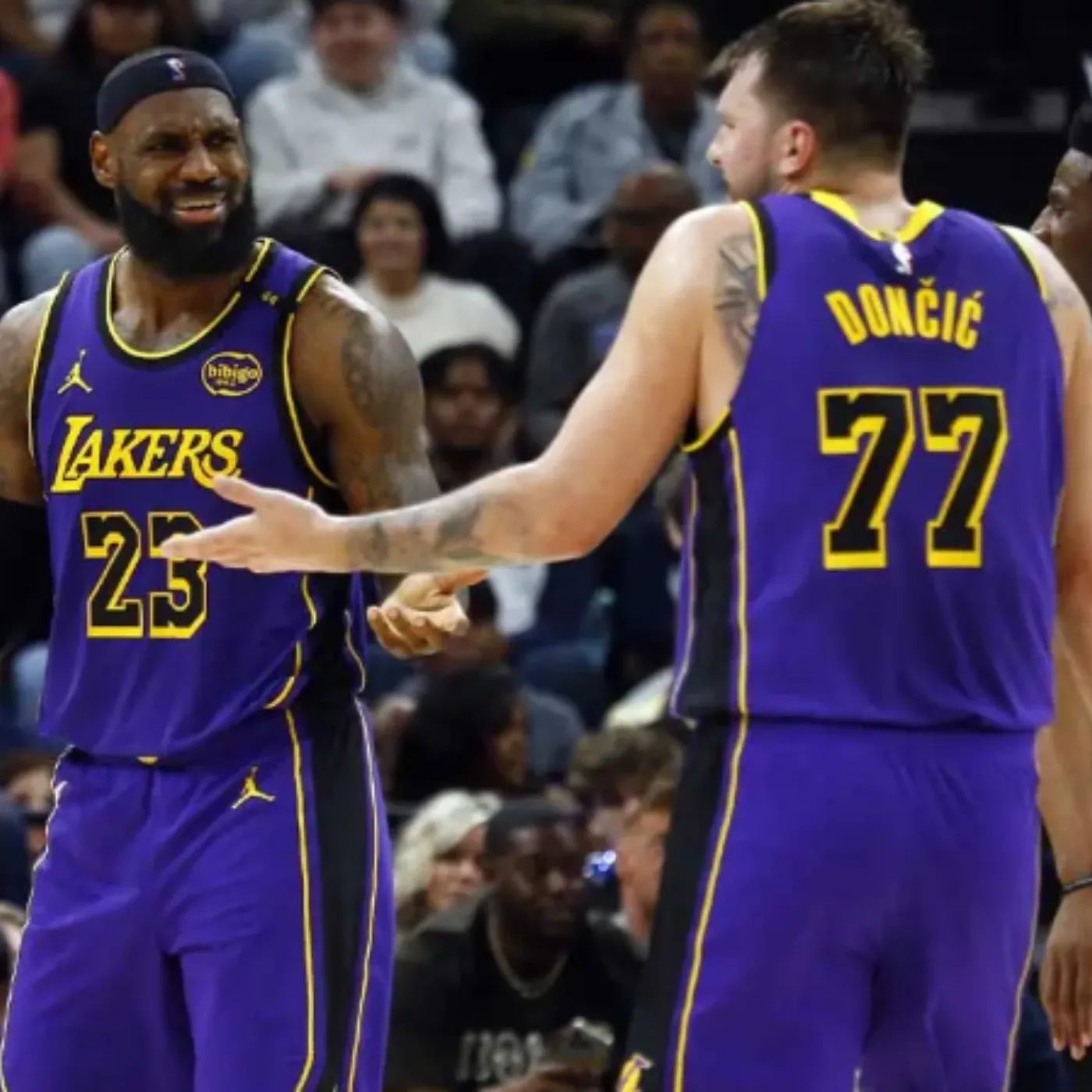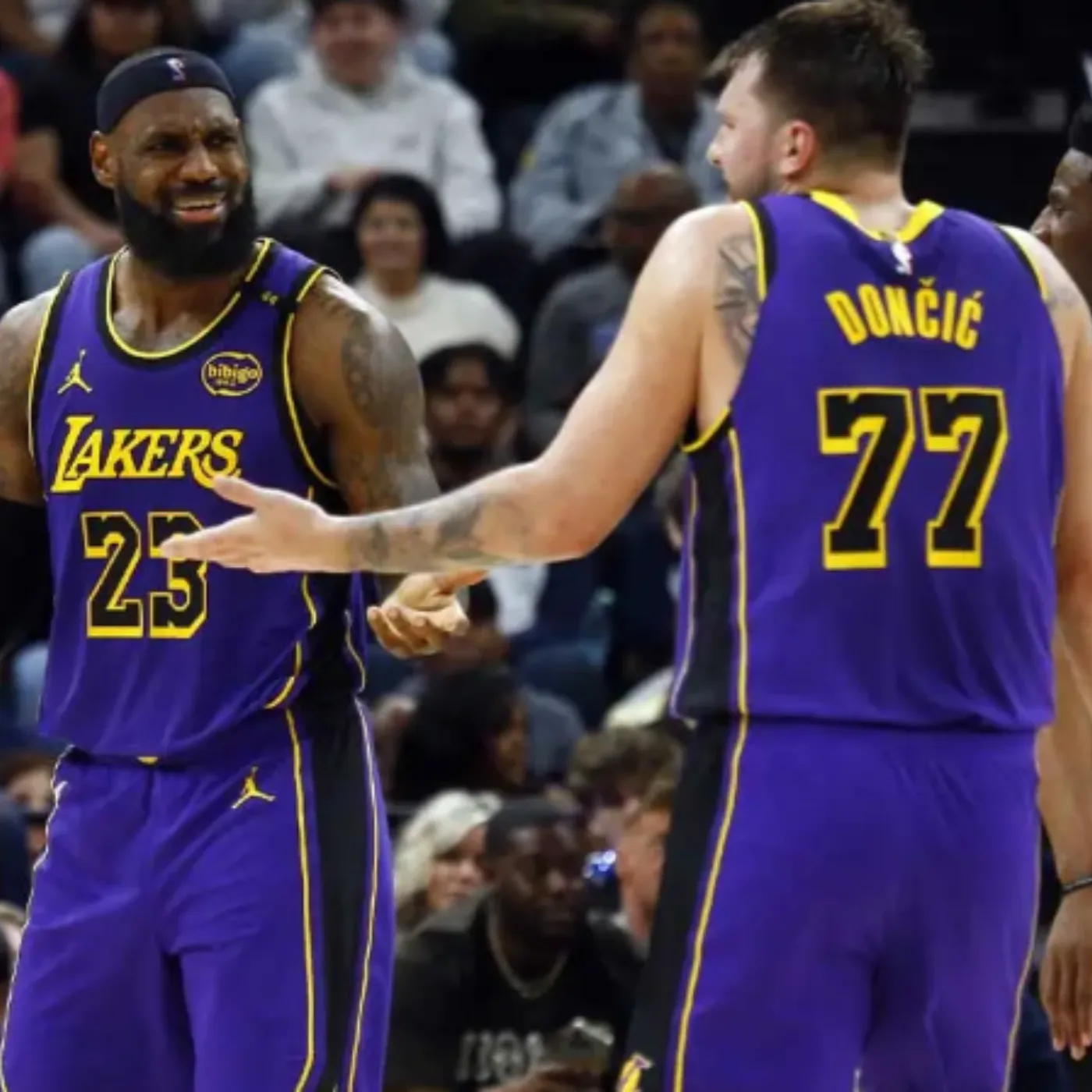
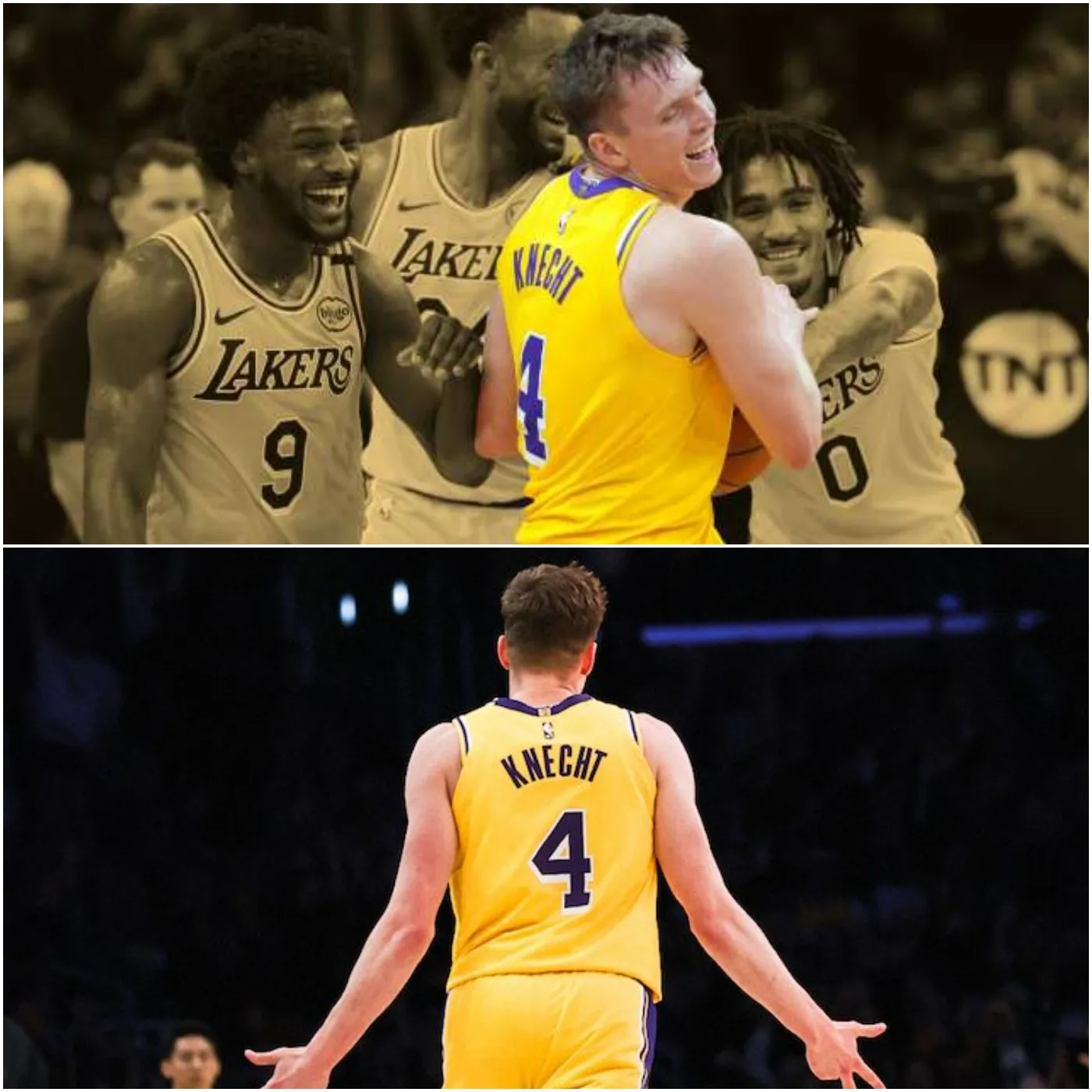
Lakers Nearly Gave Up on Knecht—Now They Want Him to Prove Them Wrong?
The Los Angeles Lakers almost sent their rookie, Dalton Knecht, packing in a failed trade with the Charlotte Hornets. The deal would have shipped Knecht and Cam Reddish to Charlotte in exchange for Mark Williams and draft compensation. But as fate would have it, the trade fell apart, leaving Knecht back in purple and gold—and with plenty to prove. Now, NBA superstar Paul George has stepped in with some unexpected wisdom, turning what could have been a devastating blow into a golden opportunity.
But let’s get real—how does a rookie handle almost being traded before even fully unpacking his bags? Should Knecht feel insulted? Motivated? Or just straight-up confused? Let’s break it all down.
Paul George’s Take: “Use This as Fuel”
If anyone understands the NBA’s unpredictable trade chaos, it’s Paul George. On his podcast, Podcast P, the Philadelphia 76ers forward offered some blunt but insightful advice to the Lakers rookie:
“You’re a rookie. Appreciate your blessings for what it is. You are playing for the most storied franchise in the NBA.”
Translation: Suck it up, kid. You’re still rocking a Lakers jersey, and that means something.
But George didn’t stop there. He challenged Knecht to flip the script and use the trade talks as motivation to prove his worth:
“Go out there and prove why you belong—why that was a bad decision.”
Basically, the Lakers almost traded you? Make them regret even considering it.
“Trade Bait” or Future Star? Knecht’s Perspective
Paul George also spun the trade talks in a positive light, saying:
“You played so well you had trade bait. There’s teams out there that want you.”
That’s one way to look at it! While being labeled as “trade bait” doesn’t exactly sound like a compliment, in NBA terms, it means you have value. Teams see potential, and they’re willing to make moves to get you. Not bad for a rookie who hasn’t even hit his first All-Star break.
But let’s not sugarcoat it—almost getting traded can mess with a young player’s confidence. One minute you’re the Lakers’ 17th overall pick, the future of the franchise (or so you thought), and the next minute, you’re an asset in a business decision. That’s the brutal reality of the NBA.
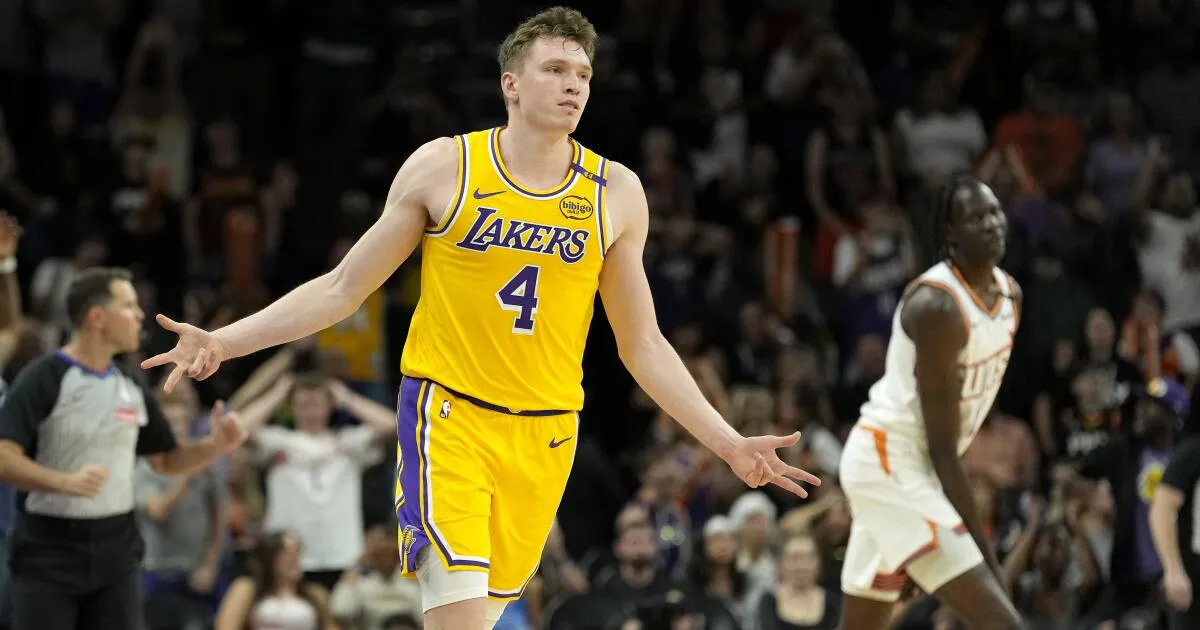
The Lakers’ Side of the Story: Business, Not Personal
For those wondering if the Lakers were about to give up on Knecht, the trade talks weren’t necessarily a knock on his ability. The proposed deal was more about addressing roster needs rather than questioning Knecht’s potential. The Lakers were looking to bolster their frontcourt, and Mark Williams fit that bill.
Still, if you’re Knecht, knowing you were almost shipped off just months into your NBA career isn’t exactly a confidence booster. But rather than sulking, Knecht has taken George’s advice to heart and is back in the rotation, determined to prove he belongs.
Knecht’s Numbers: More Than Just a “Throw-In” Piece
So far, Dalton Knecht has shown flashes of real promise in his rookie season:
-
9 points per game – Solid contribution for a first-year player.
-
3 rebounds per game – Respectable numbers for a guard.
-
36% three-point shooting – A crucial asset in today’s NBA.
-
15 minutes per game – Consistently earning playing time.
For a mid-first-round pick, these are respectable numbers. If the Lakers had no faith in him, he’d be buried at the end of the bench. Instead, he’s still in the rotation, which speaks volumes.
The Psychological Toll: How Does a Rookie Handle Trade Drama?
Let’s be honest—getting dangled in trade talks isn’t easy, especially for a young player trying to find his footing in the league. One moment you’re part of a team’s future plans, the next you’re a bargaining chip in a business deal. How does a 22-year-old rookie process that?
This situation can go one of two ways:
-
Knecht lets it shake his confidence – He starts second-guessing himself, his minutes decrease, and he fades into the background.
-
Knecht uses it as motivation – He works harder, sharpens his game, and makes sure the Lakers regret ever considering trading him.
The mental toughness needed to navigate the NBA is just as important as physical talent. Knecht is now in a position where he can prove he has both.
Paul George Knows the Game—Is His Advice Foolproof?
Paul George has been through his fair share of trade drama. From his days in Indiana to his blockbuster move to OKC and later LA, he understands what it’s like to be viewed as an asset rather than just a player. But does that mean his advice applies to Knecht?
Some might argue that a rookie like Knecht doesn’t have the luxury of controlling his narrative the way a seasoned All-Star does. George’s advice is great—if you’re already a star. But for a guy still trying to secure a long-term place in the league, is it really that simple?
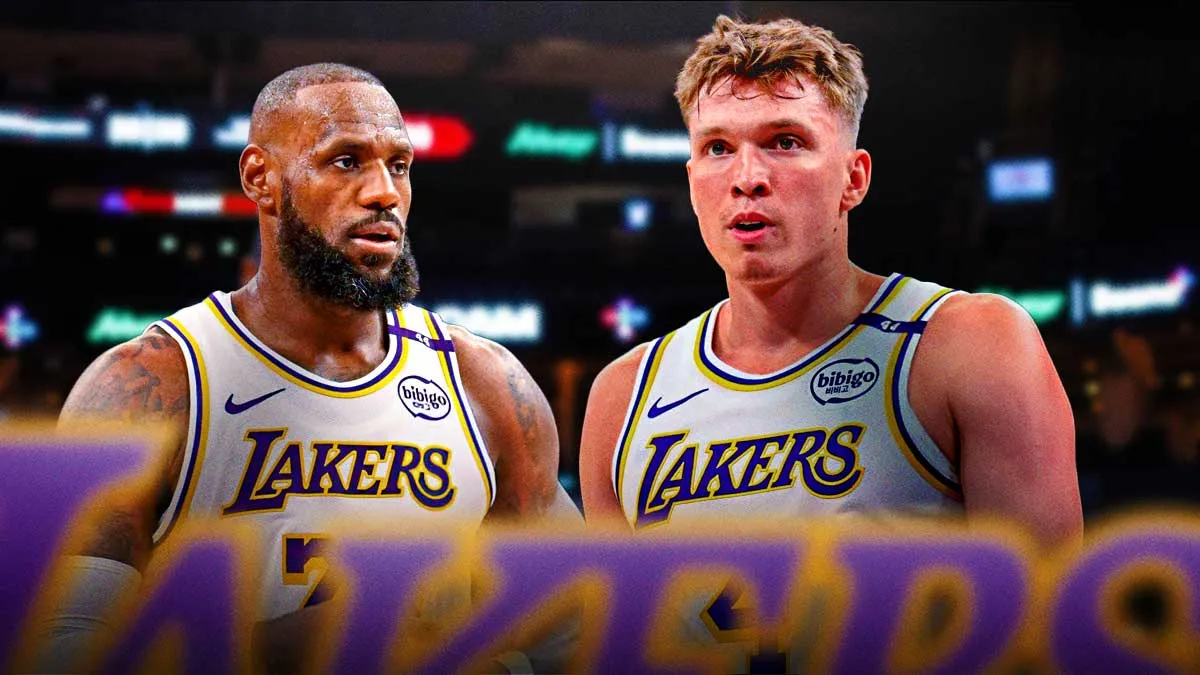
Lakers Fans Weigh In: Should Knecht Feel Disrespected?
Lakers fans are split on this issue. Some believe the front office made a mistake by even considering moving Knecht, while others think he’s still unproven and the trade was just business. The question remains: Should he feel disrespected?
Some argue that a rookie being in trade discussions so early signals that the team doesn’t fully believe in him. Others think the opposite—that it’s a sign he’s valuable enough to be part of a trade package.
Either way, the message to Knecht is clear: Prove you’re worth keeping.
What’s Next for Knecht? Prove the Lakers Wrong (or Right)
The best way for Knecht to silence the doubters and trade talk? Keep improving. If he levels up his game, the Lakers will be forced to acknowledge they almost let a future star slip away.
If he doesn’t? The business of basketball will move on, with or without him.
For now, Knecht has a golden opportunity to control his own narrative. As Paul George said—he’s still wearing the Lakers jersey. The question is: How long will he keep it?
What Do You Think?
-
Should Knecht be angry about almost being traded, or should he take it as a compliment?
-
Did the Lakers dodge a bullet by keeping him, or should they have pulled the trigger on the deal?
-
Is Paul George right? Should Knecht use this as motivation to prove his worth?
Drop your takes in the comments—because this conversation is just getting started!








